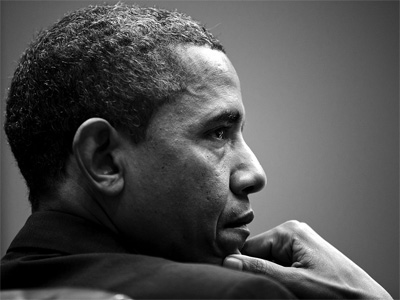The Myth of a Moderate Obama
Mini Teaser: The president is no pragmatic centrist. In fact, he has the most expansive and leftist vision in the history of the presidency.
Further, every thinking American knows that the country’s out-of-control entitlement system is significantly responsible for its public-debt overhang, which represents the most dire threat facing the country today. Yet Obama offers to address this problem—in limited ways —only if opposition Republicans agree to further lopsided tax increases on the wealthy. His underlying aim seems to be to get a compromise budget bill through the Senate so he can resume his class-driven assault on House Republicans—and thrust that wedge ever deeper into the nation’s political consciousness.
This is new. And it bears a greater resemblance to Latin American populism than to the U.S. political tradition. As Charles Krauthammer has written, Obama’s populism is “so crude that it channels not Teddy Roosevelt so much as Hugo Chavez.” Too true. But Venezuela’s Chavez had what the Economist calls an “oil-fueled bounty” to “buy himself popular support, with social programmes and handouts.” Obama only has the American rich, and he can’t squeeze enough bounty from that source to sustain the magnitude of his programs and handouts without breaking the U.S. economy. The only question is how much damage he will be able to generate before the next election.
Robert W. Merry is editor of The National Interest and an author of books on American history and foreign policy.
Image: Pullquote: There are some important differences between Obama now and Franklin Delano Roosevelt then.Essay Types: The Realist
Pullquote: There are some important differences between Obama now and Franklin Delano Roosevelt then.Essay Types: The Realist 